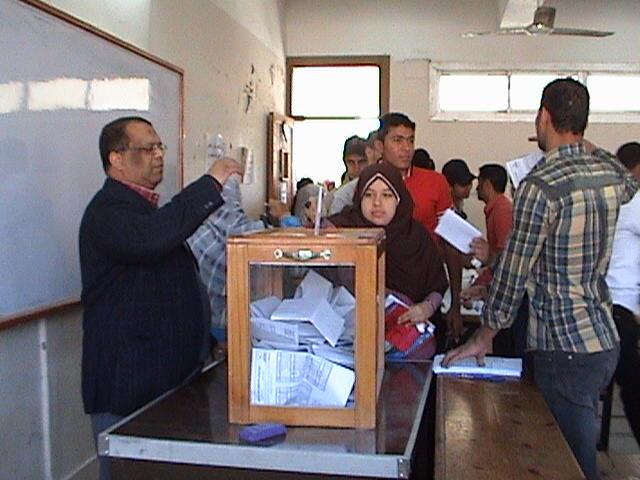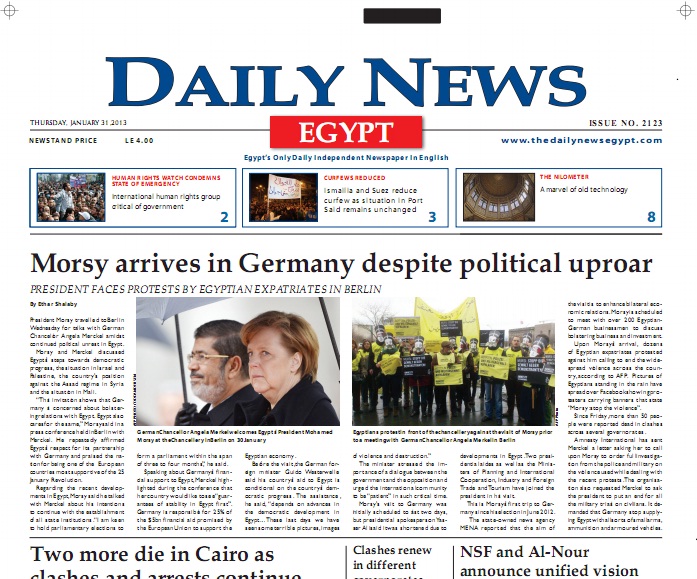Student Unions (SU) are back on track, after nearly two years of restrictions within Egyptian universities. Elections are being held this November, and kicked-off on Tuesday, coinciding with International Students’ Day.
Students across Egypt began electing SU executive committee members. Elections are to take place over several phases, which include run-offs for equally elected candidates. The process begins with the election of committees for each faculty inside each university.
When the heads of the committees are elected, elections move upwards to the level of the university’s vice-presidents and deputies, then the head of the university’s SU, then finally SU representatives of all universities on a national level.
University committees include culture and media, sports, technical, and social activities committees and so on. Student Unions have been halted since 2013 due to the political turmoil in Egypt following the downfall of the Muslim Brotherhood and the ouster of former president Mohamed Morsi in July.
All of this ended all possible activities for students, in parallel with the impossibility to hold any political activities on campus. Democracy Index (DI), a tracing tool of the International Development Center (IDC), has followed student uprisings over the past years and observed a dramatic decrease in protests.
“Oppressive measures against students and political violence on the streets actually resulted in less protests inside universities, who instead reached out for street movements,” IDC’s Executive Director Mohamed Adel told Daily News Egypt Tuesday.
Nearly 807 protests were organised by students in the period from October 2014 to June 2015, as university students’ share of those demonstrations was 91%, a DI report stated. Out of those, 57% of the demands were the release of detained students and the return of suspended students.
“The more repressed rebellious students are in universities, the more they seek external opportunities – such as Misr Al-Qawiya Party’s student committee – and the more there is violence,” Adel commented.
Furthermore, Adel explained that another reason behind the delay of SU elections since the latest elections held in 2012-2013 are conflicts between students and administrations regarding students’ executive regulations.
However, Adel does not believe the political space will be open to students currently, despite the elections. “To be clear, the state will control students’ political movements. Now, whether the universities will consider those student activities or banned political activity will depend on the action itself, and throughout history the line between the two has never been clarified by all regimes,” Adel said.
In other words, if a student protest is launched in solidarity with the Palestinian cause and the administration does not have an opposing opinion, then they would consider that activity as legitimate.
Students were largely involved in pro-Morsi protests organised in the month that followed his ouster, and the most reputable public universities witnessed violent clashes in their first academic terms in September 2013.
The Association for Freedom of Thought and Expression (AFTE) has documented violations against students and issued various reports concerning student movements in post-30 June Egypt. It noted that students’ protest took a political run by mid-September 2013, notably with the emergence of student groups affiliated to the Brotherhood, such as Students Against the Coup (SAC) in Al-Azhar University, organising “anti-coup” protests on weekly basis.
Those demonstrations were heavily confronted by security forces, including Falcon private security company hired by the Ministry of Higher Education to secure universities. Increased oppressive measures inside universities resulted in the killing and injury of dozens of students across governorates.
Other counter-protest measures included arrests, military trials, severe prison sentences, and definitive suspension.
By mid-October 2013, protesters took their demonstrations outside university campuses, directly clashing with police forces. Raising Brotherhood slogans or symbols became a crime for which students could be arrested and tried. Ahead of the second semester in March 2014, universities had allowed the police to be present and interfere on campus.

